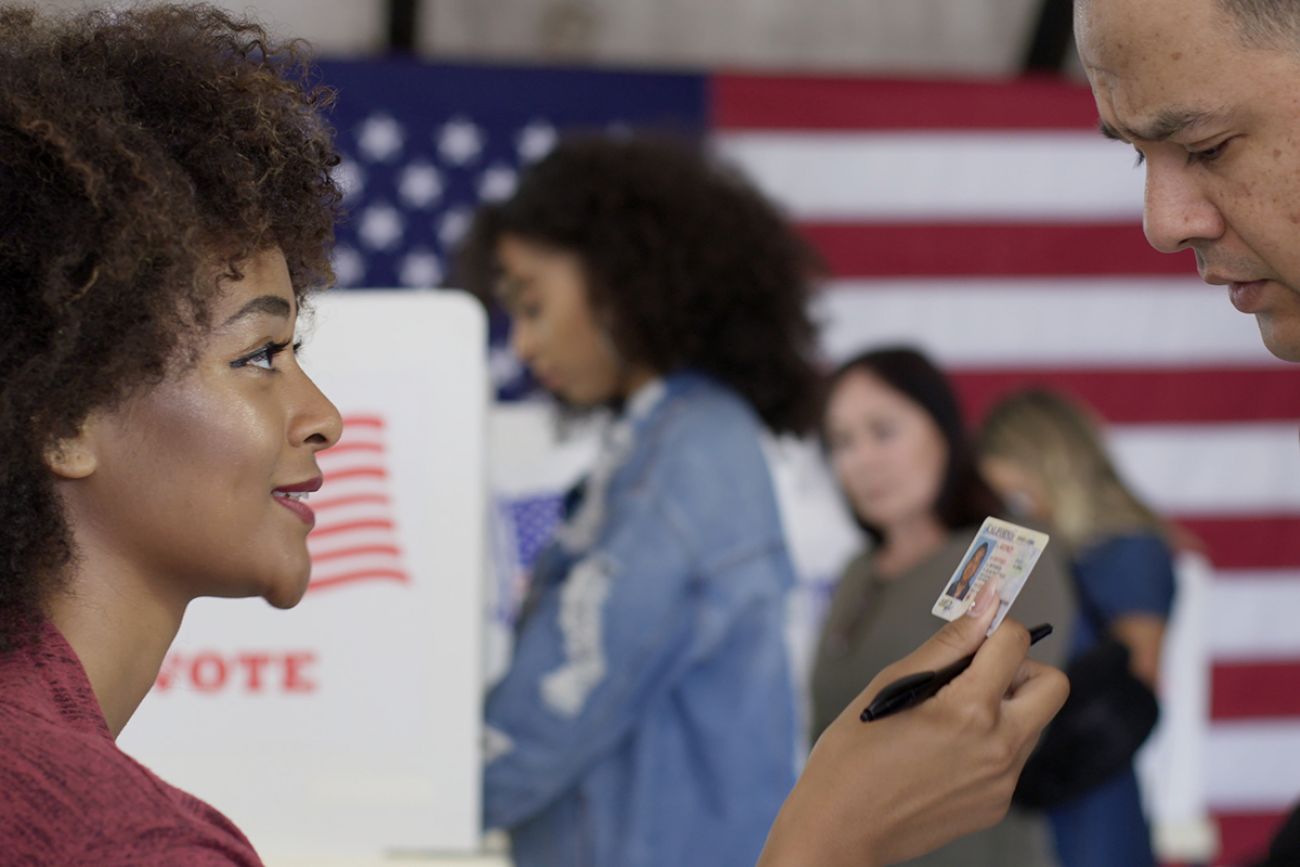Michigan blue wave foils GOP plans to enact voter ID, school choice this year

- Republican petition drives to bypass Whitmer veto delayed
- Secure MI Vote petition rendered moot by Proposal 2
- Let MI Kids learn unlikely to reach GOP Legislature this year
LANSING — A Republican petition to tighten election rules is effectively dead, and another to create a voucher-like scholarship program faces a dim future after Michiganders on Tuesday chose to add voting rights to the state constitution and gave Democrats complete control in Lansing next year.
Organizers had hoped to put both measures before the current Republican-led Legislature in order to circumvent vetoes by Democratic Gov. Gretchen Whitmer, who rejected similar bills in 2021.
But slow signature collection followed by delays at the Michigan Bureau of Elections — which put off petition signature reviews this fall to focus on oversight of last week’s statewide election — means neither is likely to reach the Legislature before Democrats take over in January.
Related:
- Michigan Democrats target Right-to-Work: ‘Golden opportunity’ or ‘nuclear war’?
- Analysis: Parents rights school board campaigns lost most Michigan races
- Michigan Democrats will control Lansing. What will they do with it?
And next year, “those things have no chance of passing the new Legislature,” said Mark Brewer, former chair of the Michigan Democratic Party who is now an attorney working for groups that fought both petition drives.
Both proposals could still end up on the 2024 ballot, but it’s essentially a moot point for the Secure MI Vote petition campaign, which had sought to make voter ID mandatory by eliminating a signed affidavit option.
It’s now irrelevant because 60 percent of Michigan voters on Tuesday approved Proposal 2, a sweeping voting rights measure that put current voter ID rules into the Michigan Constitution and also allow for up to nine days of early voting in future elections.
Proposal 2 effectively “canceled out” the Secure MI Vote proposal, organizer Fred Wszolek told Bridge Michigan.
“The legislature wouldn't pass it at this stage next year, but it would have been kind of overwritten by Proposal 2 nonetheless,” he said.
Let MI Kids Learn, a group backed by former U.S. Education Secretary Betsy DeVos, in August submitted to the state two sets of signed petitions for a voucher-like program that would create tax-exempt scholarships that parents could use to fund private school education.
But the Michigan Bureau of Elections hasn’t started reviewing the Let MI Kids Learn or Secure MI Vote petitions because it is “currently focused on the canvass, certification, and audit” of this week’s general election, said Angela Benander, a spokesperson for Secretary of State Jocelyn Benson.
While both groups missed the June deadline to file petitions for the 2022 ballot, the Bureau plans to review them “well ahead of the constitutional requirement to do so in June of 2024,” she said in a statement.
The Bureau was able to review other petitions quite quickly earlier in the year, but it appears “they’re not going to do us any favors” by certifying the scholarship petitions by the end of December, said Wszolek, a GOP consultant who also works for the Let MI Kids learn campaign.
“And so it would go in front of a Democratic Legislature next year and end up on the ‘24 ballot,” he said.
The Michigan Constitution gives lawmakers 40 days to consider petitions for initiated legislation. The Legislature can enact initiatives without a governor’s signature, propose an alternative or do nothing and send the measure to the ballot for voters to decide in the next statewide election.
The GOP-led Legislature used the process last year to circumvent an expected Whitmer veto and invalidate a 1945 law she had used to issue a sweeping lockdown and other public safety orders early in the COVID-19 pandemic.
With legislative approval apparently off the table, it’s not yet clear if Let MI Kids Learn organizers will decide to run an aggressive statewide ballot campaign in 2024, or if DeVos will decide to bankroll what could be a very expensive fight similar to the one she lost in 2000, when voters rejected a school choice voucher proposal she had spearheaded.
"There was a Plan A, but I don't know if anybody's fully discussed a Plan B,” Wszolek told Bridge. "Maybe stay tuned on that. I think that's going to require a lot more thought, a lot more polling.”
The Michigan Bureau of Elections is also yet to review signed petitions submitted in July by Raise the Wage, a liberal group that seeks to raise the state’s minimum wage to $15 an hour, including for tipped restaurant workers.
But Brewer, who is also an attorney for the wage group, said he is not concerned by the delay. He noted all three petitions in question were filed to the state after the June deadline to make the 2022 ballot.
The Democratic-led Legislature could decide to approve the wage petitions next year, making them law without the need for an expensive ballot campaign.
But “if it gets on the ballot, it will be 2024,” Brewer said. “ There's plenty of time to review those signatures for the 2024 election.”
See what new members are saying about why they donated to Bridge Michigan:
- “In order for this information to be accurate and unbiased it must be underwritten by its readers, not by special interests.” - Larry S.
- “Not many other media sources report on the topics Bridge does.” - Susan B.
- “Your journalism is outstanding and rare these days.” - Mark S.
If you want to ensure the future of nonpartisan, nonprofit Michigan journalism, please become a member today. You, too, will be asked why you donated and maybe we'll feature your quote next time!




